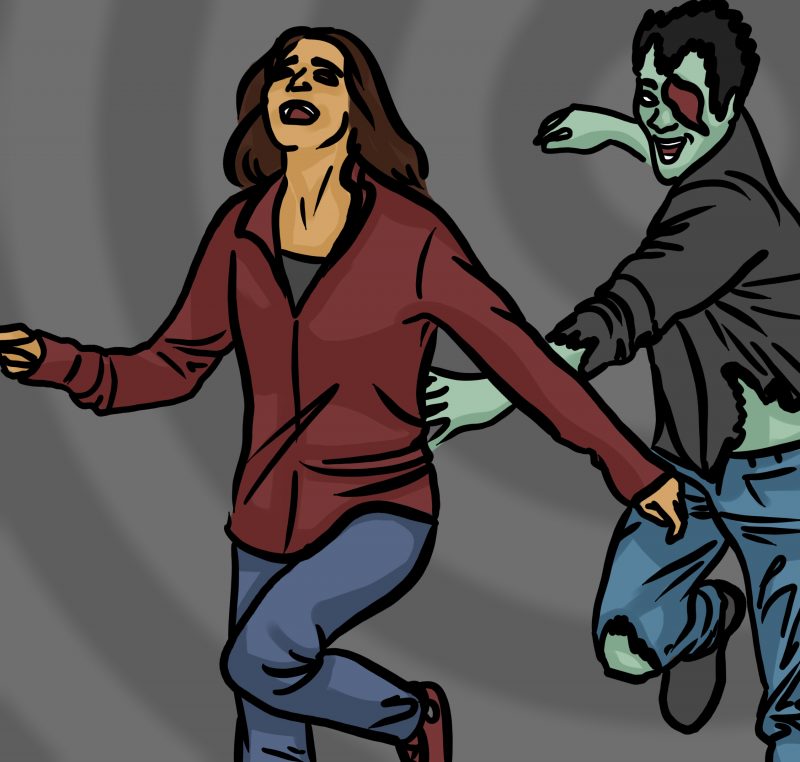“Are you going to take a nap?” my boyfriend asked.
“No,” I said. But I didn’t open my eyes.
“You look like you’re going to take a nap,” he said patiently. “You’re wrapped up in a blanket burrito again.”
Because we have a long-distance relationship while he finishes school in Colorado and I finish school in Texas, he spends a lot of time looking at my head just barely poking out of a blanket. Especially when I’m supposed to be studying for a test. It’s all very romantic. We both can’t wait for long-distance to be over.
I wholeheartedly believe that if I didn’t have my boyfriend to talk to, I would have a much harder time dealing with stress. I have terrible discipline as it is.
Lately, I’ve been trying to run in the morning while using an app called Zombies, Run! The app simulates a world taken over by zombies and you need to run and do various jobs for an outpost you find. I tried turning on chase mode when I first started out running, which means that occasionally zombies will start chasing you, and you have to run faster or they will “eat” you and take the supplies that you collect as you run.
By the time the zombies started chasing me 15 minutes in, I was so tired that I sat down on the sidewalk and consciously let the zombies kill me. Death was sweet and swift.
I imagine that all colleges everywhere are pockets of stress, and everyone’s trying to find ways to de-stress, be it exercise, blanket burritos or food. College is wonderful and an exciting opportunity for freedom, fun and self-discovery.
But at the same time, I think it’s fair to say that more independence can be stressful because we become more aware that we are responsible for our own futures. A New York Times article wrote that while anxiety and depression in young adults have both steadily increased, anxiety has become more prevalent than depression.
The article links to studies done by the American College Health Association in 2011 and 2016. According to the studies, 62 percent of students who went to counseling services sought help for anxiety in 2016, whereas 50 percent of students who went to counseling services went for anxiety in 2011.
I hear a lot of people in my classes and labs talk about how busy and stressful their lives are. Students have multiple labs. Sometimes, they have extracurricular stuff like jobs, sports or music to do alongside classes. Sometimes, they have sickness or the death of a loved one that can throw wrenches into their schedules and lives.
On top of that, we want to do well in school, make lots of money, have a social life, be active members of the community, be politically aware, see the world and impress — or at least pacify — our parents.
I’ve heard multiple students, usually freshmen, that are so stressed they’ll suddenly say something along the lines of: “If I don’t get an A or B in this introductory class then I’m not going to do well in my other classes and possible employers will think that I’m not very capable and then I won’t be able to get a job!”
My usual response is to tell them that everything will be alright, and that employers usually look for an upward trend anyway. But that doesn’t mean I don’t sometimes feel the same way when I’m at my lowest.
Another New York Times article advocated young adults to practice self-compassion in the face of stress. That’s not the same as dropping all responsibilities. It’s more like accepting that the going gets tough and figuring out how to get through it because you’ve come out of numerous difficult situations before.
According to the article, self-compassion allows a person to “own up to a tough moment without paying for it with [his or her] self worth.” There’s not really any way to lessen a work load in the last month of school, but there’s still plenty of time to cut yourself a little slack.
Doing good work doesn’t have to be perfect work.






